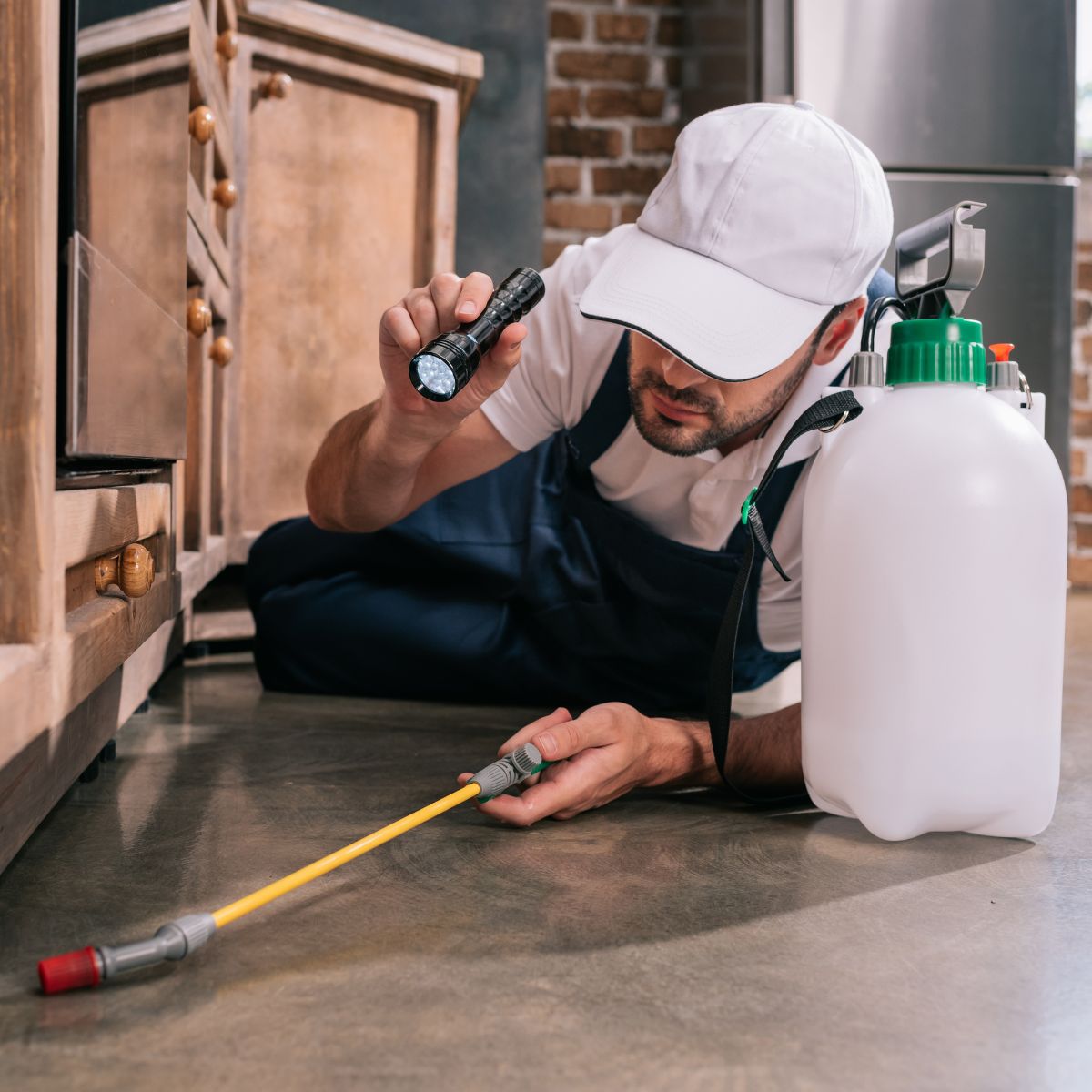Recognizing the Various Strategies to Insect Control: A Comprehensive Overview

Natural Insect Control Techniques
Employing environment-friendly methods such as buddy planting and organic bug control is vital for efficiently managing bugs in agricultural settings. Friend planting involves expanding different crops in closeness to discourage parasites, improve nutrient uptake, and enhance overall plant health and wellness.
Organic parasite control includes introducing natural killers or microorganisms to control pest populaces. Ladybugs, as an example, feed on aphids, regulating their numbers without the need for chemical pesticides. One more example is the use of Bacillus thuringiensis (Bt), a microorganism that targets certain insect bugs while being harmless to humans, animals, and helpful insects.
These environmentally friendly approaches not only lower the reliance on artificial pesticides however also help protect biodiversity and dirt health. By including all-natural bug control approaches into agricultural practices, farmers can attain sustainable bug administration while reducing unfavorable effects on the atmosphere.

Chemical Insect Control Solutions
In addition to natural bug control methods, the usage of chemical bug control solutions plays a considerable duty in effectively taking care of pest populations in agricultural atmospheres. Chemical parasite control solutions are formulated to target particular bugs that might cause extensive damage to crops. These options typically contain synthetic pesticides that are developed to remove parasites rapidly and effectively.
One of the essential advantages of chemical bug control options is their efficiency in regulating parasite problems widespread. Farmers can use these remedies making use of numerous approaches such as splashing, airing out, or seed treatment to safeguard their crops from unsafe pests, weeds, and illness. Furthermore, chemical bug control services are relatively easy to use and can provide fast results, helping farmers safeguard their returns and lessen financial losses.
However, it is important to make use of chemical bug control options sensibly to decrease prospective negative influence on the atmosphere, non-target microorganisms, and human health and wellness. Proper application strategies, adherence to safety and security standards, and regular tracking are essential to ensure the accountable use chemical insect control remedies in agricultural techniques.
Organic Insect Control Approaches
Organic parasite control approaches leverage natural killers or virus to take care of pest populaces in agricultural settings effectively. One usual biological control method is the introduction of natural opponents, such as ladybugs or parasitical wasps, to target details pests.
One more biological control approach includes utilizing microorganisms like bacteria, infections, or fungis to contaminate and kill parasites. Generally, biological bug control techniques supply a sustainable and targeted remedy to pest administration in agriculture.
Integrated Bug Management (IPM)
Integrated Parasite Administration (IPM) is a detailed method that incorporates different parasite control techniques to effectively handle and decrease pest populations in farming systems. IPM concentrates on long-lasting avoidance of insects via a combination of biological, social, physical, and chemical control methods. By integrating these various approaches, IPM aims to lower reliance on chemical pesticides, reduce ecological impact, and promote lasting parasite management methods.
One trick facet of IPM is making use of biological controls such as all-natural killers, parasites, and microorganisms to control parasite populations. This method takes advantage of the power of nature to keep a balance between insects and their natural opponents without triggering injury to the setting.
Additionally, IPM involves cultural methods like crop environment, sanitation, and rotation manipulation to look at this site create unfavorable conditions for insects and disrupt their life cycles. Physical controls such as traps, mulches, and obstacles are likewise used to stop bug invasions.
Mechanical and Physical Pest Control Strategies
Making use of non-chemical approaches, such as mechanical and go to the website physical bug control methods, is a crucial aspect of comprehensive pest monitoring approaches, developing upon the foundation of Integrated Insect Management's alternative strategy. Mechanical bug control includes making use of physical obstacles or catches to avoid pests from accessing and harming crops or structures. This approach can consist of methods like setting up displays on home windows, using row covers in farming, or utilizing sticky traps to capture insects.
Physical parasite control techniques, on the other hand, concentrate on directly eliminating bugs through physical methods. For example, using warmth treatments to get rid of bed insects or vacuuming up pests like ants or spiders can be reliable ways to take care of invasions without using chemicals. By integrating these mechanical and physical bug control techniques into an Integrated Pest Monitoring strategy, people and experts can reduce reliance on pesticides while still properly managing pest populaces and lessening damages.
Verdict

In enhancement to natural pest control approaches, the use of chemical insect control solutions plays a substantial function in efficiently managing pest populaces in agricultural settings.One of the vital advantages of chemical pest control options is their efficiency in regulating bug infestations on a huge scale.Integrated Parasite Administration (IPM) is a comprehensive technique that incorporates different parasite control methods to effectively handle and minimize pest populaces in agricultural systems.Using non-chemical methods, such as physical and mechanical pest control methods, is an essential facet of comprehensive parasite administration approaches, building upon the structure of Integrated Pest Administration's all natural approach. By integrating these physical and mechanical insect control methods right into an Integrated Pest Administration strategy, specialists and people can decrease dependence on chemicals while still effectively handling pest populaces and decreasing damages.